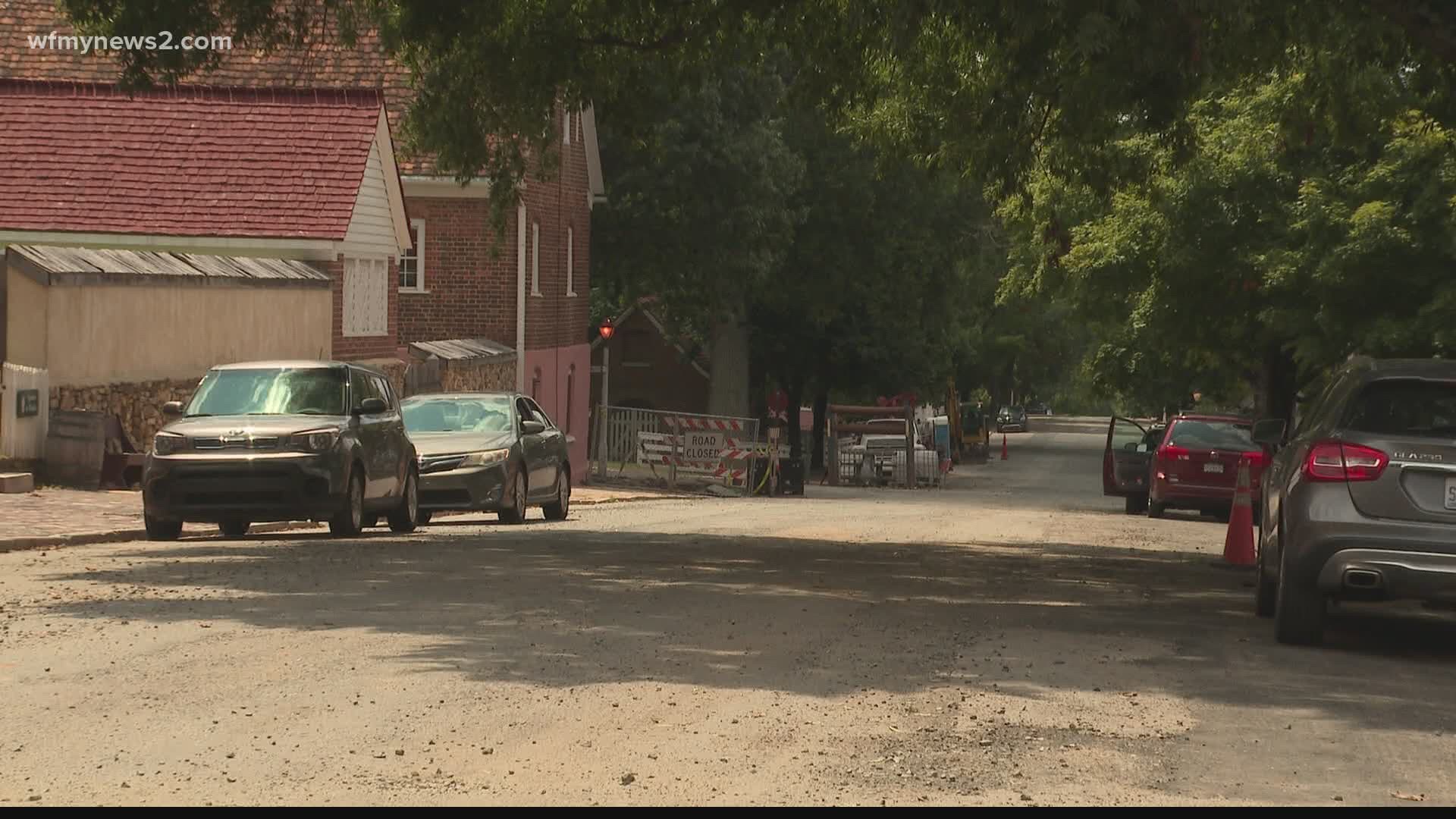WINSTON-SALEM, N.C. — Old Salem has certainly seen a lot of history unfold since the community was built in 1766, still, the coronavirus has presented some unprecedented challenges for the historic district. The area is usually filled with visitors immersed in history and guided by interpreters but that all came to a halt on March 13th because of the pandemic.
Since then, President and CEO, Frank Vagnone, said they've been working nonstop to stay open in a new way. That began with mapping out the historic buildings to evaluate how the virus could possibly spread.
"Above all else we were concerned about our staff and our visitors and one thing that that mapping showed us was that neither one of those could be safe and in fact the more research that comes out the more it validates where we ended up," Vagnone said.
Old Salem is now setting an example for how other historic sites will handle the pandemic. For them, it's meant totally new programming.
"We are different organization," he said. "So let’s stop thinking as if we are a 'ye old person in a costume' with 800 people coming during the day because it’s just not going to happen and, in fact, we have people talking about 36 months as being the length of having to wait to be fully interpretive historic spaces."
Old Salem started a new online learning platform, the Exploratorium Series, that offers courses for elementary, middle and high school students. Already they've had 90,000 viewers from across 30 states. Their "History Nerd Alerts" social media posts, that connect past artifacts to present day situations, have reached 400,000 people online. Soon, a brand new program, Salem Pathways, will allow people to take self guided tours through a smartphone app.
"If a parent or home school teacher needs help with something specific in the curriculum email our Learning and Place Department and will do the best we can," Vagnone said.
In addition to the new programs, Old Salem is using their resources in a way they haven't before. Instead of taking people on a tour of the gardens or bakery, they're using them to grow produce and bake bread for local food pantries during a time of increased need. So far, the site has donated two tons of produce.
"What are the assets we have?" Vagnone said he asked himself. "For us we have gardens and land and a bakery and educators. All of that stuff as an asset to be used in an entirely different way to serve a community whose needs changed overnight and that’s where I think the strength of old Salem came in."
All of the changes means more work for employees.
"Our team has been working non-stop," Vagnone said. "I mean we all joke, 'we’ve never worked harder,' I think everybody feels that way and because of that we need to provide extra self-care because quite frankly all of us really love what we’re doing and will keep doing it until we drop. That’s not good for the individual, which is most important, and it’s not good for the families and it’s not good for Old Salem because we’re in this for the long-haul."
Vagnone said some experts believe it will be 36 months before historic sites like Old Salem can reopen like they once were. To take care of employees, they're offering one mental health day every two weeks and offering resources to take care of people who work at the site.
Even though Old Salem closed in early March, Vagnone said they're open, just in a different way. To learn more about the new programs and how you can experience Old Salem during the pandemic, visit their website.


